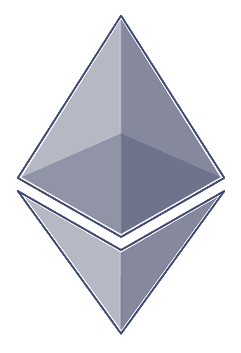After more than a year and around $18 million of fundraising, the Ethereum network has launched. If you haven’t heard of Ethereum, you must be very new to cryptocurrency indeed. While Ethereum is a little difficult to get your head around, it is hard to think of anything that has been hyped half as much.
Ethereum is the brain child of brain child Vitalik Buterin. Without a doubt, Buterin is one of the most intelligent people alive today. He has demonstrated an ability to express his fascinating thoughts, having co-founded Bitcoin Magazine.
He is now putting those thoughts into action. Creating Ethereum earned Buterin last year’s World Technology Award for IT Software. Recipients in other categories included Elon Musk and Jane Goodall.
Ethereum is a decentralized application platform. It supposedly achieves the holy grail of crypto that has been nibbled at from one contender or another but never fully realized – smart contracts.
As a blockchain-based programming platform, Ethereum has the capacity to perform an astonishing breadth of services, or at least to serve as the base from which those services are launched. With Ethereum, users can issue their own cryptocurrency, or crowdfund a project. Nice features, but they sound familiar, and in fact other cryptocurrencies have been doing this for a while already.

Where Ethereum begins to differ is in the ability to create a decentralized autonomous organization – a program that mechanically, without the need for intervention, performs a given task with no human party conducting the operations and thus presumably trustable, or more accurately trustless. These organizations can even be democratically controlled, so that users of the organization can exert control over the mechanism, but only as a group.
Ethereum uses currency units known as “Ether” as the fuel for the network. These tokens were sold in an initial coin offering to raise the millions of dollars that have been funding the development project so far. Exactly how many millions is a bit murky. Since the Ether was sold for Bitcoin, the dollar value received from the crowdfunding effort would depend on when the Ethereum developers sold their bitcoin to cover operational costs, and many bills, like developer salaries, were most likely directly paid in bitcoin.
Ethereum’s initial Frontier release is command line only, leaving it currently out of reach of most users, but opening it up to eager developers. The market has not warmed yet either, as the process for redeeming Ether tokens from the ICO is a bit complicated, and in any case the network has a built-in “thawing” period that forces users to wait anyway.
Before the Frontier release, Ethereum’s code had already been cloned and utilized in quite a few other applications. These include competitors like Counterparty as well as cooperative projects like LaZooz, a decentralized application that uses the Ethereum framework to organize commuter ride sharing. Other Dapps cover fields of interest including music streaming, health care, insurance and manufacturing. Ethereum-based Dapps already exist facilitating services from decentralized powerball to peer-to-peer lending.
Once you explore the possibilities of this project, it’s hard not to get caught up in the hype. The technology apparently works, now it just has to actually deliver. Make no mistake, this technology is set to transform not only personal finance but other areas of life as well.
Once people can store their money without needing anyone else to hold it, you have a new way of banking. Once people can organize themselves and enter into agreements that require no outside enforcement, you have a new way of governing.
